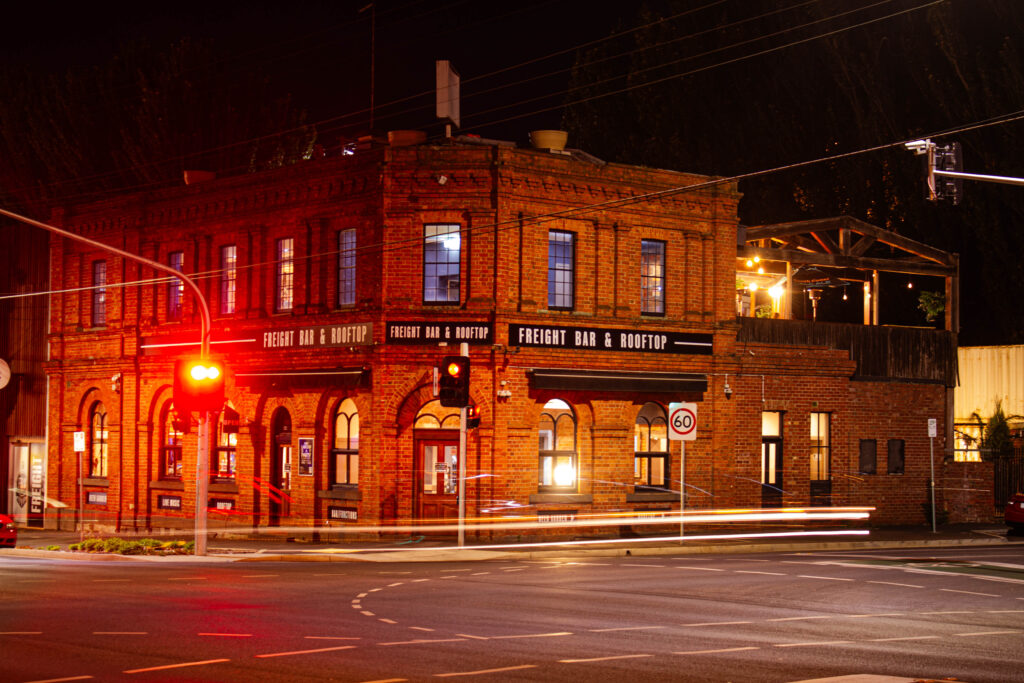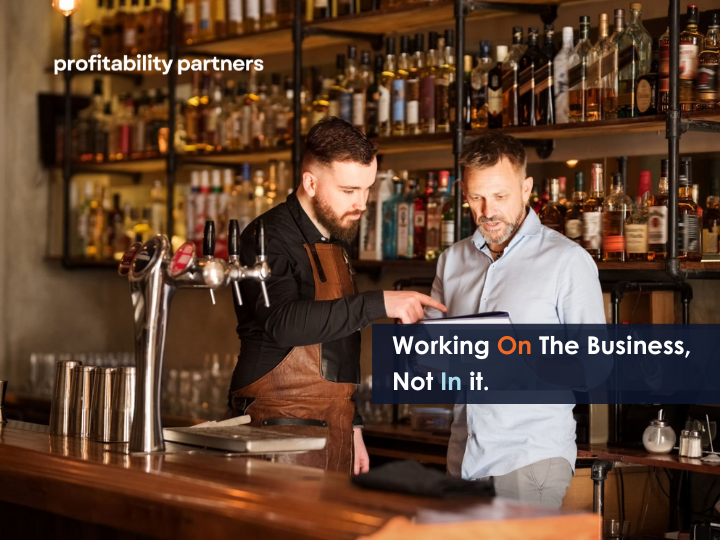Almost two years ago, I bought Freight Bar & Rooftop to gain real-world insights into the challenges myclients face. While I expected to learn the essentials of hospitality, this journey has revealed much more. I developed the PERI (Plan, Execute, Results, Improve) approach at Freight Bar, a framework that shifted us from merely hoping to make a profit to actively planning for it. These experiences have shaped how I advise my clients, equipping them with strategies rooted in practical experience.
1. Working On the Business, Not In It
Although I’ve performed every role within the venue—from venue manager to head chef, bartender, dishwasher, and even cleaning toilets—my goal is always to work on the business, not in it. This hands-on experience taught me the nuances of each role and how they contribute to the big picture, enabling me to make more informed strategic decisions and advise my clients from a well-rounded perspective.
2. Revenue and Marketing Are Primary Focuses
I’ve learned that focusing on revenue is crucial, and a data-driven approach to marketing is essential in driving it. By dedicating time to promoting events and function-hosting capabilities, we consistently attract guests. This strategic marketing has been instrumental in Freight Bar’s success, and I now encourage clients to treat revenue as a core priority.
3. Budgeting and Profit Planning Are Essential
Having a clear budget and planning intentionally for profit have been foundational practices at Freight Bar. Without a budget, it’s easy to get caught up in daily operations and lose sight of long-term goals. Now, I ensure that my clients view budgeting not just as a cost management tool but as a strategic roadmap for sustainable growth.

4. Supporting Your Manager and Head Chef Leads to Better Decisions
Running Freight Bar has shown me how important it is to empower key staff, especially the manager and head chef. When these leaders have the right financial insights and feel supported, they make smarter, more aligned decisions. I emphasize to my clients the importance of creating an environment that fosters good decision-making among their team leaders.
5. The Real Challenges of Cost Control
While managing expenses is necessary, owning my pub has shown me that balancing wages, COGS, and overheads requires a constant, flexible approach. This hands-on experience has equipped me with practical strategies to help clients align costs with revenue without compromising the guest experience.
6. Flexibility Is Key in Hospitality
Running Freight Bar has taught me the need to adapt to changes quickly—whether it’s an unexpectedly quiet night or a last-minute staff shortage. This flexibility has become a cornerstone of my coaching approach, as I now help clients build resilience into their operations, ensuring they’re ready to handle whatever comes their way.
7. Building a Positive and Improvement-Focused Team Culture
I’ve learned that a positive work environment and a focus on constant improvement are essential for long-term success. At Freight Bar, I make sure the team is always focused on improvement and having fun, creating an atmosphere where everyone feels motivated and engaged. This focus on a strong, motivated team not only boosts morale but also drives better service and business outcomes. I now advise clients on how to foster this kind of team culture, recognizing that it’s a key ingredient for sustained success.
8. Implementing the PERI Approach
Without a structured approach, we were simply hoping to make a profit. By implementing PERI—Plan, Execute, Results, Improve—I shifted our focus to actively planning for profit. This framework created a structured, data-driven process that allows us to track what’s working and make adjustments along the way. Now, I use PERI in coaching to help clients adopt a results-oriented mindset, ensuring that every action is connected to strategic planning and improvement.

Owning Freight Bar & Rooftop has been a transformative learning experience, offering me a real-world understanding of the demands and rewards of hospitality. From prioritizing revenue through data-driven marketing to implementing the PERI approach, these lessons inform my coaching. With these insights, I’m better equipped to guide my clients through the complexities of venue management, helping them make strategic decisions that lead to lasting success.

